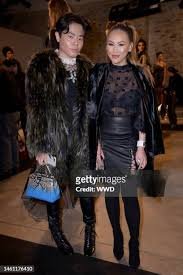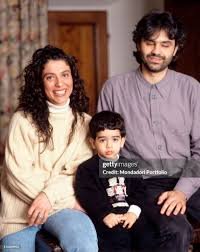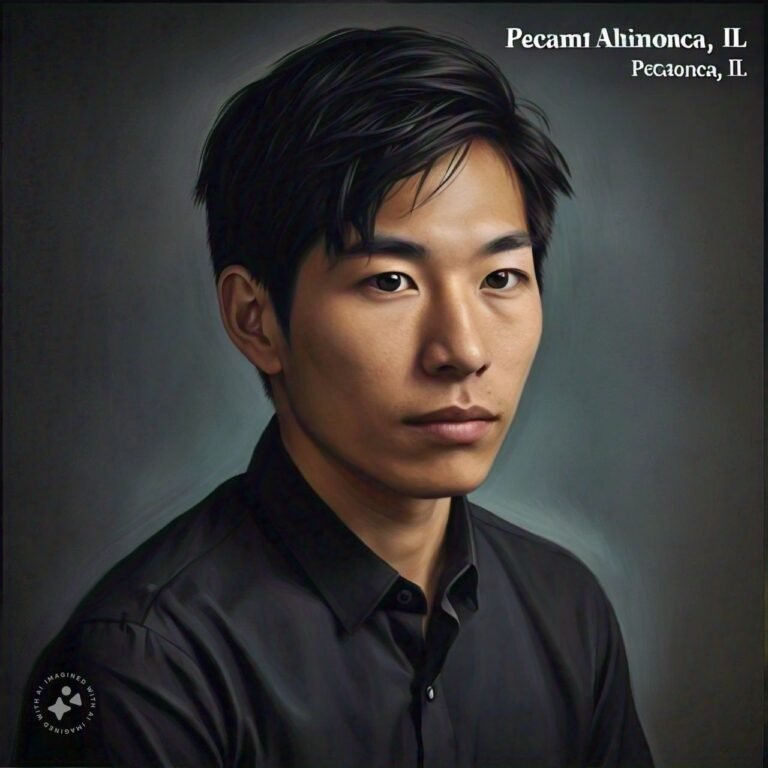Dorothy Rose is a name synonymous with inspiration, leadership, and a lifelong commitment to community empowerment. Her journey, marked by resilience and a deep sense of purpose, has left an indelible mark on countless lives. This article delves into the life of Dorothy Rose, exploring her remarkable achievements, the impact she has had on various communities, and the lessons we can all learn from her legacy. Sarah Laud Colgate
Early Life and Influences
Born in a small town, Dorothy Rose’s early years were shaped by the values of hard work, integrity, and a deep commitment to helping others. Her parents, both educators, instilled in her the importance of education and the power it holds to transform lives. Dorothy’s early exposure to the struggles of those less fortunate fueled her passion for social justice and equality.
From a young age, Dorothy showed an innate ability to lead and inspire. Whether it was organizing community events or leading school projects, she was always at the forefront, ready to make a difference. Her determination to uplift those around her only grew stronger as she pursued higher education.
Education and Early Career
Dorothy Rose’s journey to becoming a renowned leader in community empowerment was shaped by her education and early career experiences. These foundational years were critical in developing the skills, values, and passion that would later define her life’s work.
Academic Foundation: Early Years at Roosevelt High School
Dorothy Rose was born into a family that deeply valued education. Growing up in Springfield, Illinois, her parents, both educators, were instrumental in nurturing her love for learning. From an early age, Dorothy was encouraged to explore the world through books and engage in thoughtful discussions at the dinner table. This environment fostered her intellectual curiosity and set the stage for her future achievements. Phillips Marcelo
Dorothy attended Roosevelt High School in Springfield, where she quickly established herself as a standout student. Known for her exceptional academic performance, she excelled in subjects such as social sciences, history, and public policy. Her teachers often remarked on her ability to grasp complex concepts and her eagerness to apply her knowledge to real-world situations.
Beyond academics, Dorothy was actively involved in several extracurricular activities. She was the president of the Student Government Association, where she led initiatives aimed at improving the school environment and advocating for student rights. Dorothy also participated in the debate team, honing her skills in public speaking and critical thinking—abilities that would later serve her well in her advocacy work.
University Years: Pursuing Social Change at the University of Chicago
After graduating from Roosevelt High School with honors, Dorothy Rose was accepted into the prestigious University of Chicago. There, she pursued a Bachelor’s degree in Political Science, a field that perfectly aligned with her passion for social justice and community development.
The University of Chicago provided Dorothy with an intellectually stimulating environment where she could explore her interests in depth. She was particularly drawn to courses on public policy, urban studies, and social justice, which examined the systemic issues affecting underprivileged communities. Dorothy’s professors noted her keen ability to connect theoretical frameworks with practical solutions, often leading class discussions on how policies could be designed to address real-world inequalities.
During her time at the University of Chicago, Dorothy was not only a top student but also an active leader on campus. She co-founded the Social Justice Advocacy Group, an organization dedicated to raising awareness about issues such as racial inequality, poverty, and access to education. The group organized workshops, panel discussions, and community outreach programs, which became a significant part of campus life. Enrica Cenzatti
Dorothy’s most notable contribution during her university years was her involvement in a research project with the University’s Urban Labs, where she worked alongside faculty members to study the impact of educational policies on marginalized communities in Chicago. This experience provided her with invaluable insights into the challenges faced by these communities and further solidified her commitment to pursuing a career in advocacy and social reform.
Early Career: A Step into Professional Advocacy
After earning her degree in Political Science with high honors, Dorothy Rose embarked on her professional career with a clear sense of purpose. Her first position was as a Policy Analyst at the Chicago-based nonprofit, Heartland Alliance, an organization dedicated to advancing the human rights and responding to the human needs of vulnerable populations.
In her role at Heartland Alliance, Dorothy was responsible for analyzing and developing policies related to housing, healthcare, and education for low-income families. She worked closely with community leaders and policymakers to advocate for changes that would improve the lives of those most in need. Dorothy’s ability to combine rigorous data analysis with a deep understanding of the social issues at hand made her an invaluable asset to the organization.
One of her early successes at Heartland Alliance was her contribution to a groundbreaking report on housing inequality in Chicago. The report, which highlighted the disparities in access to affordable housing across different neighborhoods, was widely recognized and led to several local government initiatives aimed at addressing the issue. Dorothy’s work on this project earned her recognition within the organization and established her reputation as a dedicated and effective advocate for social justice.
Championing Social Causes
Empowering Women and Youth
Dorothy Rose was a fervent advocate for empowering women and youth, dedicating much of her career to initiatives that provided them with the tools, resources, and opportunities to succeed. She spearheaded the “Women Rising Initiative,” which offered leadership training, financial literacy workshops, and networking opportunities to women from underserved communities, helping them to break through barriers in various professional fields. Additionally, Dorothy launched the “Youth Leaders of Tomorrow” program, which focused on mentorship, education, and vocational training for young people, particularly those at risk of dropping out of school or facing economic hardships. Her work empowered thousands of women and youth to overcome challenges, build confidence, and achieve their goals, creating a ripple effect of positive change in their communities.
Awards and Recognition
Dorothy Rose’s impactful work in community empowerment and social justice has earned her numerous awards and recognition throughout her career. She was honored with the prestigious Presidential Medal of Freedom, one of the highest civilian awards in the United States, for her tireless advocacy for underprivileged communities and her significant contributions to public service. Additionally, Dorothy received the MacArthur Fellowship, often referred to as the “Genius Grant,” which recognized her innovative approaches to addressing systemic inequalities and her groundbreaking work in creating sustainable community programs.
Her achievements were further acknowledged when she was named one of Time Magazine’s 100 Most Influential People, highlighting her role as a national leader in the fight for social justice. Dorothy also received the National Humanitarian Award from the American Red Cross for her leadership in disaster relief and her efforts to improve healthcare access for vulnerable populations. These accolades reflect not only her professional accomplishments but also the deep respect and admiration she has garnered from peers, policymakers, and the communities she has served.
Frequently Asked Questions about Dorothy Rose
Q: What inspired Dorothy Rose to start her nonprofit organization?
A: Dorothy was inspired by her early experiences witnessing the struggles of underprivileged communities. Her passion for social justice and equality drove her to create an organization that addresses these challenges head-on.
Q: How has Dorothy Rose’s work impacted communities?
A: Dorothy’s work has had a profound impact on communities across the country. Through her nonprofit, she has implemented programs that provide education, healthcare, and economic opportunities to those in need, empowering them to build better futures.
Q: What are some of Dorothy Rose’s key achievements?
A: Some of Dorothy’s key achievements include founding a successful nonprofit organization, leading initiatives that have benefited thousands of individuals, and receiving multiple awards for her contributions to social justice and community empowerment.
Q: How can I get involved with Dorothy Rose’s organization?
A: You can get involved by volunteering, donating, or participating in one of the many programs offered by her organization. Visit [Insert Organization’s Website] for more information.
A Lasting Legacy
Dorothy Rose’s legacy is one of hope, empowerment, and unwavering dedication to the betterment of society. Her work continues to inspire new generations of leaders and advocates who are committed to making the world a better place. As we reflect on her contributions, we are reminded of the power of one individual to effect meaningful change.
In a world where challenges can often seem insurmountable, Dorothy Rose stands as a beacon of what can be achieved through passion, perseverance, and a deep commitment to helping others. Her story is not just one of personal success but of collective progress, as she has always believed that we rise by lifting others.
Conclusion
Dorothy Rose’s journey is a testament to the impact that one person can have on the world. Through her tireless work in community service, social justice, and empowerment, she has left an indelible mark on society. Her legacy serves as a powerful reminder that with passion, dedication, and a commitment to helping others, we can all make a difference.
Brit is a passionate writer with a love for storytelling and exploring the depth of human experience through words. With a keen eye for detail and a thoughtful voice, Brit crafts pieces that resonate with readers and spark meaningful reflection. When not writing, Brit enjoys quiet moments with a good book, long walks, and finding inspiration in everyday life.






